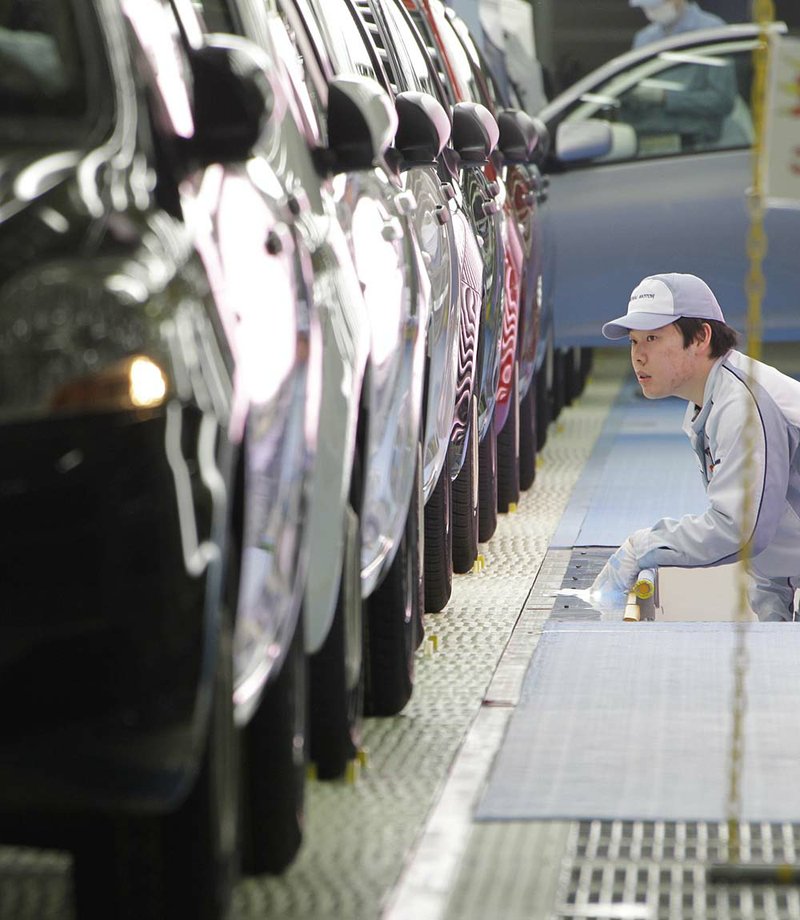OHIRA, Japan — Toyota celebrated the opening of an auto plant in a rural area of central Japan last week - its first new Japanese factory in 18 years and one that promises to grow into a significant production base for the world’s largest carmaker.
The factory in the ricegrowing Tohoku region, which employs 900 and boasts production capacity of 120,000 vehicles a year, is part of Toyota’s promise to keep “made in Japan” alive by maintaining vehicle production in Japan of at least 3 million vehicles a year. That’s about 40 percent of the 7.5 million vehicles it produces around the world.
Moving more production to low-wage countries such as Thailand, China and India has become a tempting strategy for Japanese automakers to stay competitive, especially amid a strong yen, which makes goods made in Japan more expensive overseas.
A shiny red Yaris compact sedan, set for export to North America, was the first model to roll off the line.
“This is like a dream come true,” said Masahiro Atobe, mayor of Ohira, population 5,500.
He acknowledged he had been worried that the plans would be ditched after the financial crisis hit, sending auto demand plunging in the U.S., a crucial market for Toyota Motor Corp.
The rising yen was another concern, he said. The dollar sank from about 90 yen last year to nearly 80 yen at one point in recent months,although it has recovered to about 83 yen.
The new plant is part of a larger move by Japanese automakers to try and keep jobs in Japan by cutting production costs, even though auto demand in Japan has long been stagnant.
Rival Nissan Motor Co. recently began producing the Leaf electric vehicle at a Japanese plant that once manufactured the March subcompact, whose production was moved to Thailand last year.
Toyota Executive Vice President Atsushi Niimi declined to say if the Tohoku plant will start making hybrids, as some Japanese media have speculated. But he said having Japan plants produce hybrids and plug-ins would be one solution to adding value to the plants.
The new factory is set to start producing the Corolla for both the Japanese and North American markets in April.
It is designed to be more compact and energy-efficient than comparable old-style Toyota plants. Instead of hanging from above on the assembly line, the cars move on a conveyor belt side by side, instead of one after the other, so that the line can be shorter and workers don’t have to move around as much.
Robotic arms lifted cars from one work area to another, also shortening the line. Smaller factories also consume less energy, cutting costs.
Such penny-pinching innovations will be introduced in other plants, including overseas, and become central to Toyota quality production, Niimi said.
Business, Pages 70 on 02/20/2011

